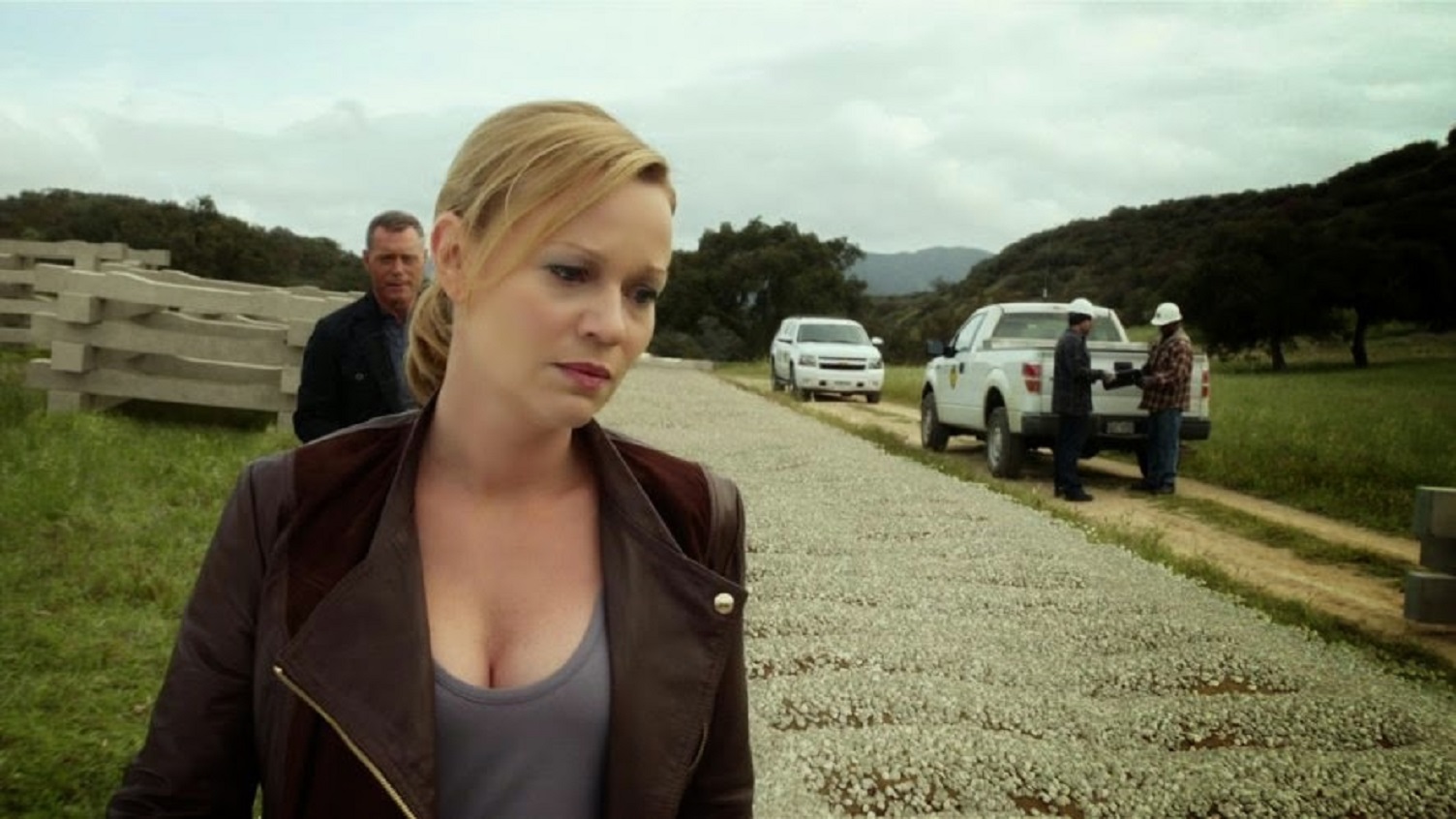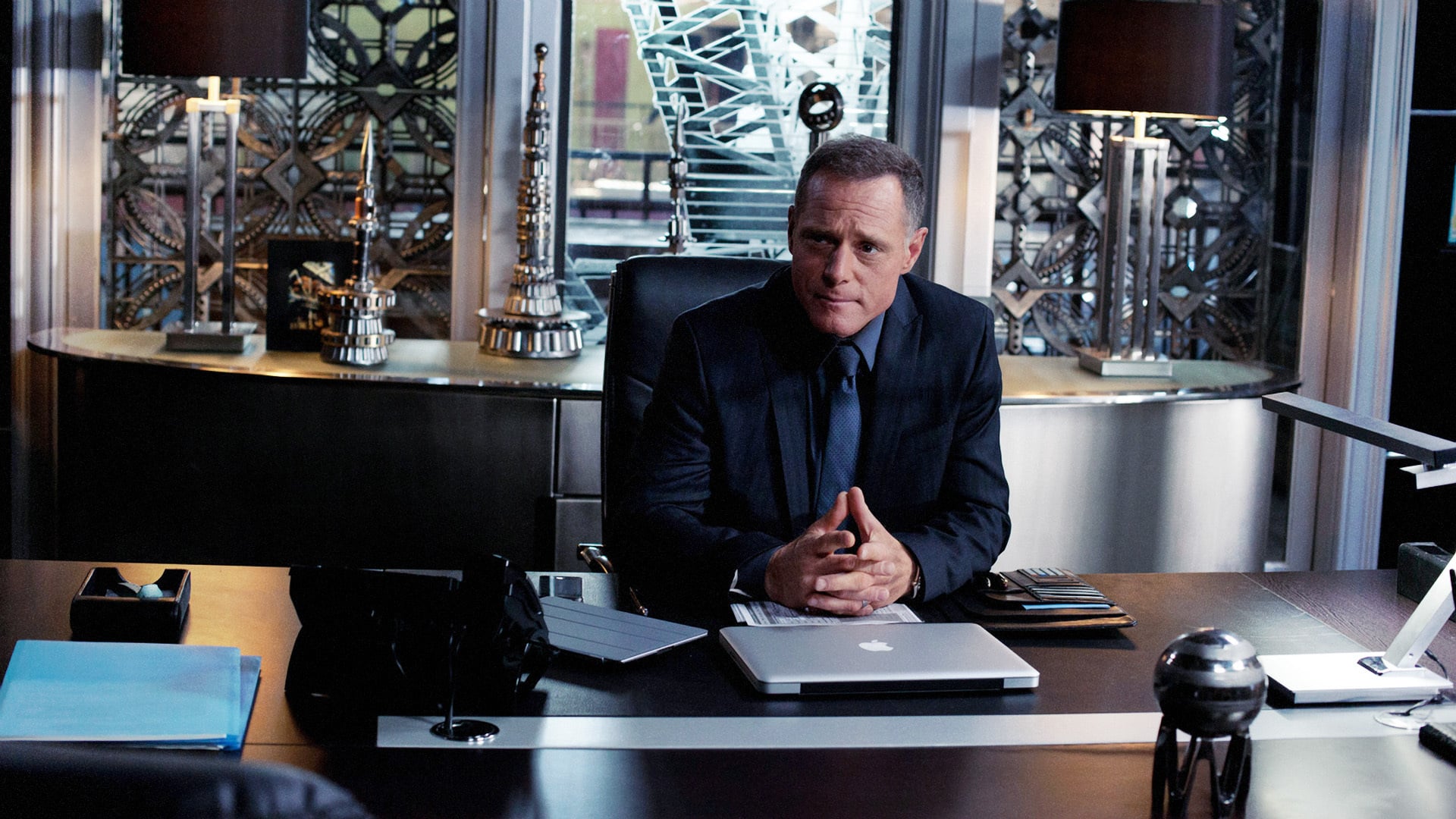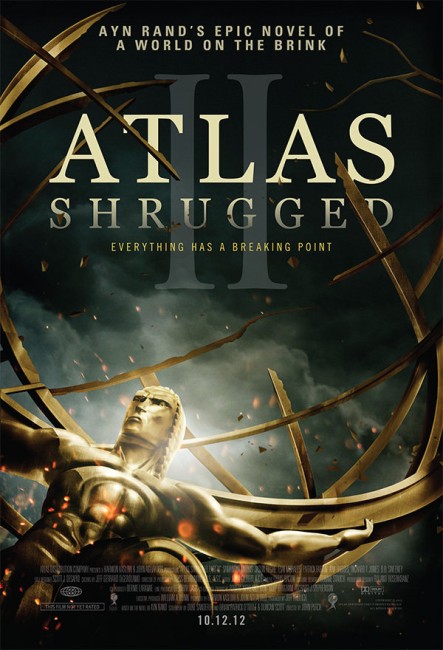USA. 2012.
Crew
Director – John Putch, Screenplay – Brian Patrick O’Toole, Duke Sandefur & Duncan Scott, Based on the Novel Atlas Shrugged by Ayn Rand, Producers – John Aglialoro, Jeff Freilich & Harmon Kaslow, Photography – Ross Berryman, Music – Chris Bacon, Visual Effects Supervisor – Larry Detwiler, Visual Effects – Base Media Technology Group (Supervisor – Tang Bingbing), Identity Fx, Inc. & Inhance Digital, Special Effects Supervisor – Steve Shines, Production Design – Roland Rosenkranz. Production Company – Atlas Distribution Company.
Cast
Samantha Mathis (Dagny Taggart), Jason Beghe (Henry Rearden), Patrick Fabian (James Taggart), Esai Morales (Francisco d’Anconia), Kim Rhodes (Lillian Rearden), Diedrich Bader (Quentin Daniels), Richard T. Jones (Eddie Willers), Paul McCrane (Wesley Mouch), Arye Gross (Kenneth Danagger), Larisa Oleynik (Cherryl Brooks), Kevin M. Horton (Dave Mitchum), Robert Picardo (Dr Robert Stadler), Rex Linn (Kip Chalmers), Bug Hall (Leonard Small), Jeff Yeagher (Jeff Allen), Kip Gilman (Judge Beckston), Ray Wise (Head of State Thompson)
Plot
Dagny Taggart is trying to find a means of getting the advanced electric motor she discovered to work but finds that all the scientists capable of understanding it are disappearing. Henry Rearden refuses to obey the Fair Share Law that demands he produce limited quotas and sell to the government. His refusal to do so has him hauled into court and facing a jail term but he gives a defiant speech that causes the judges to back down. Meanwhile, other leading industrialists all over the country are sabotaging their businesses and disappearing. To counter the economic crisis, the government introduces Directive 10-289 that demands that all businesses face productivity and wage freezes, that no person can be fired and that all patents must be surrendered to the government. Henry is forced to comply and turn over the patent for Rearden Metal with threat of exposure of his affair with Dagny. She quits her position at Taggart Transcontinental after Directive 10-289 demands the dismantling of the John Galt Line. Under her self-serving brother James, the company descends into chaos with a massive rail disaster occuring due to incompetence. In trying to set this right, Dagny finds herself on the trail of the mysterious John Galt and the origins of the electric motor.
Atlas Shrugged II: The Strike is the second in a trilogy of films based on Ayn Rand’s novel Atlas Shrugged (1957). The book is an influential one – one hesitates at the use of the word classic. Indeed, one failed to realise just how much influence it has had on libertarian/conservative thinking until the 2012 US election campaign when Republic Vice Presidential nominee Paul Ryan held it up as a key work, which was followed by moves to make it a required text in some US schools.
The book has been oft mentioned as a film adaptation over the years – at one point to have starred Angelina Jolie as Dagny – but this did not emerge until fitness machine millionaire John Aglialoro obtained the right and financed Atlas Shrugged (2011). Atlas Shrugged was a box-office flop and received almost universally negative reviews. Seemingly ignoring Rand’s viewpoint that the marketplace is the ultimate arbiter, Aglialoro sank more money into Atlas Shrugged II: The Strike and then, despite The Strike‘s similar run of bad reviews and even worse box-office, went onto make the third part of the trilogy. At one point, rather hilariously, the producers were soliciting the budget for the third film via a crowdfunding campaign despite the irony of Ayn Rand’s disparagement of charity and welfare. This finally emerged with Atlas Shrugged III: Who is John Galt? (2014).
For reasons unclear, almost all of the production personnel that were present in Atlas Shrugged have been dumped and the entire film recast, which could well either be due to how little money the first film was made on/earned back or else the persons involved wanting to distance themselves from the film’s political message-making. (When it came to the third film, the director amd all of the cast from this film were also replaced as well). The new director is John Putch who, like the first film’s Paul Johansson, is a former actor (with a reasonable list of credits but noticeably no leading roles). Putch has a career as a director going back to the 1980s, mostly in tv and occasional films with titles such as My Ghost Dog (1997), The Boy Who Saved Christmas (1998) and Beethoven’s Christmas Adventure (2011), along with a couple of forgettable science-fiction films Curse of the Shadowborg (1997) and Tycus (1999). John Putch does a competently serviceable job with the drama – about the level of a tv movie, just like the first film. The effects representing the trains and rail disaster look exactly like digital effects; far better are those with the planes pursuing each other through the skies at the beginning and end.

The new leads are recast with Samantha Mathis and Jason Beghe, an actor one is unable to recall seeing in anything since George Romero’s Monkey Shines (1988). The recasting makes the two central roles of Dagny Taggart and Hank/Henry Rearden very different to what they were in the first film. For one, the ages of the characters seem to have been upped from early thirties to their mid-forties. Jason Beghe takes you aback when you first meet him. Beghe voices the part with a gravelly rasp that seems more suited to a cliche Mafia don than a leading businessman. That said, Beghe makes a more ruggedly charming and friendly Hank than Grant Bowler did in the first film. Samantha Mathis makes for a far more nervous and quieter Dagny than the frosted Taylor Schilling did. If nothing else, Beghe and Mathis connect together passably well – even if the romantic scenes fail to make the film light up with the feeling of a true love between minds that the book suggests.
Atlas Shrugged II: The Strike gets more into the meat of the book where Ayn Rand starts wheeling out her ideas and speeches and, as a result, ends up being more ridiculous than the first film. Frequently, the motivations of the characters seem completely divorced from human psychology or anything remotely resembling real-world motivation – like the suggestion that business owners would readily blow up their own oil fields and mines, abandon their businesses or refuse government contracts as a matter of principle. In any real world setting, no inventor would leave the idea for a world-changing invention like the electric motor just sitting around without patenting it up the wazoo first. The utter presumption of some of the characters also sticks in one’s gall. Like where Dagny claims that the railroad is the product of her own hard work, seemingly oblivious to anybody else in her employ.
Ayn Rand never learned the concept of sharing her toys as a kid, nor of ever compromising in terms of hardline demands. What this tends to do is make Atlas Shrugged II: The Strike seem less like a work of impassioned idealism – as you could say of the much superior film version of Rand’s The Fountainhead (1949) – but an embittered paranoid fantasy. The government is seen as a monster that steals the fruits of such hard toil by way of Rand’s mythic boogieman of the Fair Play law. Here even Jason Beghe’s board of directors seem to be a weaselly democracy that is thwarting him in terms of what he wants to do. This serves to make Rand’s book seem more like the paranoid imaginings of someone who feels ideologically painted into a corner and regards the whole world as being against them.
The film becomes completely laughable when the government starts to institute a Soviet-styled regime. (Ayn Rand grew up in the early days of the Soviet Union and its confiscation of her family’s business was a great thorn that seemed to influence her entire outlook on life). Under the nightmare system she imagines, patents for products would be nationalised, wages and prices frozen, businesses given production quotas and the populace spending quotas. Here Rand has made liberal government into an absurd boogieman. In reality (particularly in the US), exactly the opposite has happened. Patents haven’t been nationalised, rather we have seen forces of authority acting as enforcement for private copyright (busting file downloaders and distributors); wages and prices haven’t been frozen – the mean US wage has gone down in terms of the inflation index, while prices for a good many things like housing have skyrocketed; unions have consistently had their rights stripped away or subverted during the 00s as opposed to being able to dominate and dictate to employers; rather than quotas, industry has been allowed to grow fairly much unrestrained. If you look at how people in some parts of the US have reacted to something as even vaguely socialist as Obamacare – caricaturing him as Hitler, Stalin and/or The Antichrist – or the attempts to institute common sense gun control, you can see just how probable a scenario any of this is likely to be. It seems sad though that so many conservatives are taking the text of Atlas Shrugged as gospel and view this as the way that liberal government would act given a chance.

There is the inevitable point after Dagny quits the railroad and everything descends into chaos under her self-important brother (Patrick Fabian). During these scenes, people are wont to deliver lines like “Thank god, someone made a decision around here.” Following the rail disaster, Samantha Mathis comments: “If government had stayed out of our business, we wouldn’t have hundreds of people dead.” (Well, actually, it was her brother putting the running of the line into the hands of an untrained neophyte that caused the disaster but what’s the difference when it comes to driving the dagger into government).
Like the book, the film seems to exist in terms of straw figure caricatures – Hank’s loathsome gold-digging wife, Patrick Fabian’s self-serving brother, Paul McCrane’s weaselly bureaucrat – and dialogue is written in terms of speeches. Even Dagny getting information about John Galt from Jeff Yeagher has to come with him making a speech that digs against the idea of business collectivism. The film even sees fit to add some very contemporary asides at the Occupy movement with protestors outside corporate offices holding up signs signifying they are part of the 99%, as well as montages of homeless in the streets.
Ayn Rand was writing in the decades before the acceleration of the stockmarket and derivatives industry, the sub-prime mortgage crisis and the world of banksters. She seemed so caught up in her idealism that she was blind to the idea that anybody would ever see otherwise and could possibly operate out of greed and deceit. Rand’s world is one that could only ever work if business people mutually agreed to a code of decency and higher morality. The reality of the situation that Rand seems oblivious to is that surely if the Koch Brothers, the Walton family, Jeff Bezos and any of the other contemporary faces that dominate the US business world were to surrender their companies and walk away to a utopia where they could ignore the rest of the populace, most people would cheer their disappearance on and welcome a workplace where people lower down the rung would be entitled to rights. Not to mention that hundreds of other similarly minded competitors or chiefs lower down the totem pole would rush into take advantage and fill the void.
What the Rand-ian principle has resulted in is less any sense of a pride in one’s achievements than an entrenched wealthy minority who have stolen and bullied to take everything for themselves and whose stranglehold on the economy and demand to pay lesser taxes has in fact created a worsening economic situation in the rest of the world. For all Ayn Rand’s fantasy utopia of a world where the successful gave up and went away, it is worth remembering that throughout history, it is organised labour forces ie. unions that have won the issues of rights, healthcare, living wages and hours that set workers in the modern world apart from serfdom and slavery, whereas there has yet to be a single recorded example in capitalist history of a business owner ever going on strike.
Trailer here


